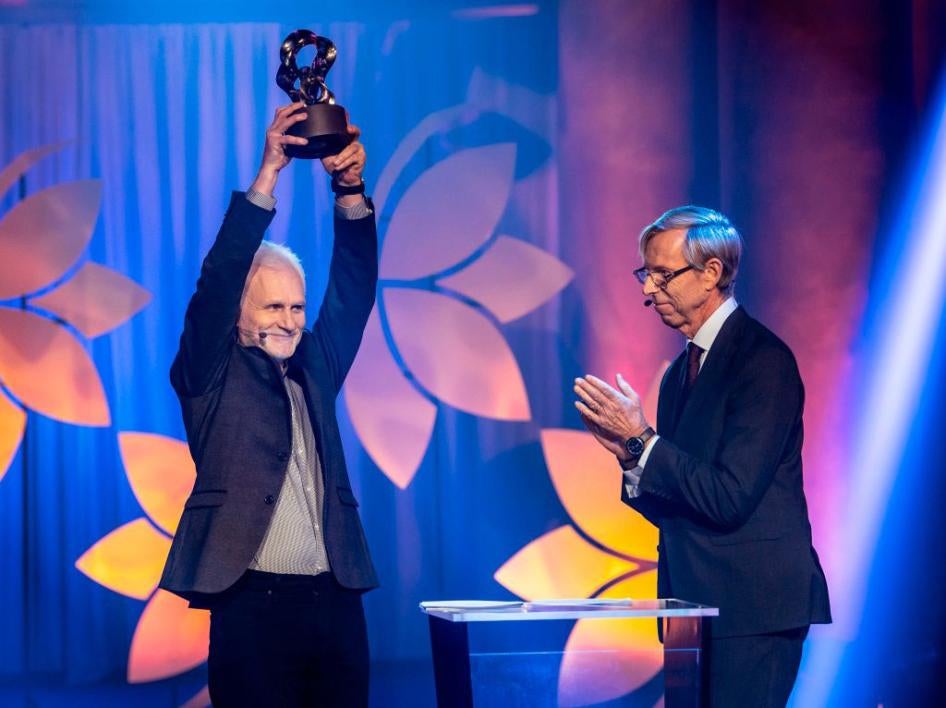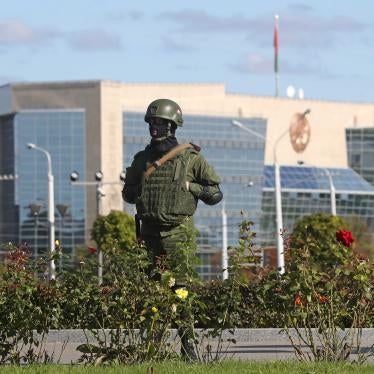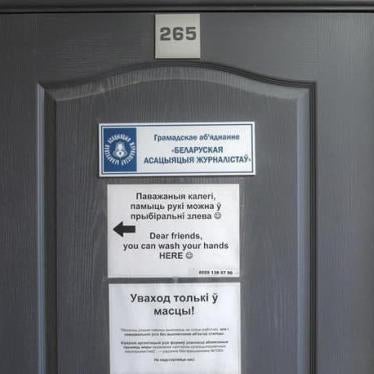On October 6, we learned that one of Belarus’s top human rights defenders, Ales Bialiatski, has been charged with tax evasion and faces up to seven years in prison. Bialiatski has been behind bars since his July 14 arrest, but the exact charges against him had been unknown, due to a non-disclosure agreement his lawyers were forced to sign. The charges finally came to light during this week’s court hearing appealing his pre-trial detention.
Bialiatski is the founder and chairman of Viasna, one of Belarus’s most prominent human rights organizations. During his 25 years of activism, Bialiatski has faced serial repression, including almost three-years’ imprisonment. On September 25, he once again celebrated his birthday behind bars.
Belarusian authorities hit Viasna particularly hard in retaliation for its outstanding work. Seven members, including Valiantsin Stefanovic, a board member, and Uladzimir Labkovic, a lawyer and coordinator of the group's program on free elections, remain behind bars on bogus criminal charges. Dozens of members became witnesses and at least six, suspects in criminal cases. Authorities conducted almost 100 interrogations of staff or their family.
The brutal crackdown on Viasna is part of the wider ‘purge’ of civil society declared by President Aliaksandr Lukashenka. At least 800 people remain behind bars on politically motivated charges.
On October 5, financial police raided the home and office of another human rights defender, Tatsiana Reviako, detained her for questioning, and seized computers and phones in connection to a criminal case. Reviako was later released, but what and even if she faces charges is unknown.
Since July, Belarusian authorities have shut down at least 270 nongovernmental organizations. Over the past week, courts formally “liquidated” the last three officially registered human rights organizations, Belarusian Helsinki Committee, Legal Initiative, and Zvyano.
Despite the shocking crackdown on Belarusian civil society, human rights defenders courageously continue their work while their jailed colleagues have little hope for a fair trial.
In 2014, Ales Bialiatski was released from his prison sentence eighteen months early, after a sustained international campaign for his freedom. Today, the international community should redouble efforts to again free Bialiatski and all political prisoners in Belarus, and end the persecution against Viasna and other rights organizations.









